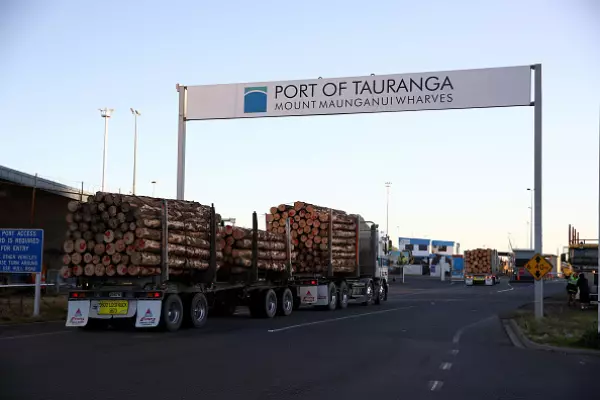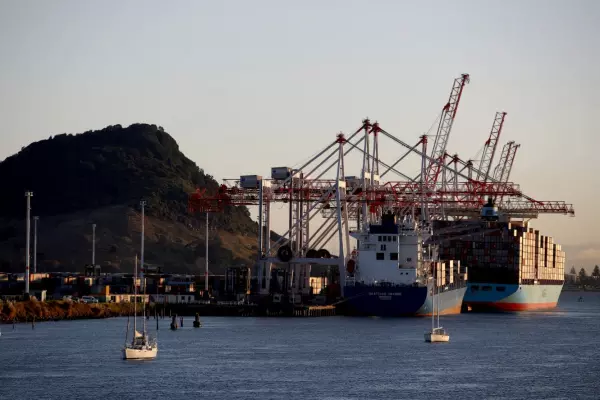Summary Shops in Auckland opened at midnight, with some eager shoppers queuing from yesterday morning. The prime minister visits her home city today.
PM returns Prime minister Jacinda Ardern will finally return to Auckland for the first time since the latest lockdown began. Sunny Kaushal, chair of the Dairy and Business Owners Group, who also owns the Shakespeare in Central Auckland, has issued an open invitation to the prime minister to visit the historic pub. "It's nice to be praised for our sacrifice but it feels as if we are being sacrificed.” He called for the $60 million given to Auckland council to support businesses to be converted into practical incentives like free parking and a UK-style ‘Eat Out to Help Out,’ which helped hospitality and retail businesses there to recover.
Restrictions ease Shoppers queued across two nights for the opening of new footwear store JD Sports, which opened the minute it was allowed, after Auckland’s lockdown eased at midnight. Other shops open today, along with the likes of Motat, Kelly Tarlton's, Butterfly Creek, museums, libraries and the zoo. Fishing charters are among businesses that are still prevented from reopening.
Primary reopening Parents of primary school children will hear today whether primary schools can reopen next week. Thousands of businesses have had to work around staff childcare commitments as young children have stayed home for nearly three months. As yet, there has been no word on the future for junior high school students, whose senior peers have already returned.
Curry price hike More popular takeaways are joining coffee to be hit by price hikes. Curry takeaways are next on the menu, with chefs facing 50% price hikes for coriander, cumin and packaging.
Worsening defence outlook NZ faces a strategic environment that will be worse in future than it has been in the past, according to an update meant for defence eyes and that has now been removed from an external website. “New Zealand’s strategic environment has become substantially more challenging, and that this trend is likely to continue and further accelerate in coming years,” Adam Norrie said in the now deleted video recording seen by Stuff. “New Zealand faces a future strategic environment that will be much worse than that of the recent past.” While the United States and China will be major players, the worsening environment would also involve other countries, including New Zealand, he said.
ICE ban The UK is among a group of countries that will make a pledge today at the COP26 summit in Glasgow to ban the sale of internal combustion engine (ICE) cars in developed countries by 2035 and in developing nations by 2040. More than 20 countries have already announced plans to phase out petrol cars even sooner. Volvo, Ford in Europe and Rolls Royce have committed to selling all-electric vehicles by 2030, and many other makers, including General Motors and Volkswagen, soon after.
Record fuel prices It’s a big day for oil, as the US ponders whether to tap its strategic fuel reserves. Petrol prices in NZ, the UK and Australia continue to reach new records as crude continues to trade above US$82 a barrel. The US is looking at price forecasts and the outlook for supply and demand out of today’s Short-Term Energy Outlook from the Energy Information Administration before making a decision.
Multinational success In a market flooded with capital, starved of talent and bewildered by border closures, it’s only natural that the firms with feet in multiple countries should have the edge. While DLA Piper may not have the same local influence and weight as the “big three” law firms, it has one clear advantage: it’s part of a global behemoth with a presence in 40 countries. Through its US connection, DLA Piper has advised on several high-profile deals, including Discovery’s purchase of MediaWorks and Accel-KKR on its $1 billion purchase of Christchurch-based geo-software firm Seequent. But perhaps the most significant development is the firm acting for Pfizer on the vaccine supply arrangement with the New Zealand government.
Golden weather Farmers in the North Island’s west will be moving stock to higher ground today as the week’s unusually hot weather is set to end tomorrow in heavy rain. A wet weekend and low temperatures is affecting planning for freight companies, including KiwiRail, and Auckland’s newly-opened malls will be expecting shoppers taking refuge from the inclement weather.
Housing record NZ’s average home value has surpassed $1million for the first time, the latest monthly report from QV shows. October's national average house value rose by 27% compared to last year, at $1,002,153. Auckland’s average value rose only 5.6% to $1,427,896, while Christchurch and Queenstown saw a 10% rise. The winners were the Manawatū-Whanganui region at 35%, Canterbury and Hawke's Bay regions at 34% and West Coast at 33%.
Electricity update Contact Energy holds its annual meeting today as its share price continues to trade around the $8 mark after falling off a high of $10.74 in January. The electricity generator was pinged two weeks ago in a report that blamed $200 a year of power bills on a deal signed by Meridian and Contact to supply cheap electricity to Southland’s aluminium smelter. Meridian has pushed back strongly on the report.
Markets update In mid-afternoon trade, the S&P 500 index dropped 0.5%, the Dow Jones was down 0.5% and the Nasdaq was down 0.6%. Banks, and auto and travel companies led the slide, tempered by price rises for General Electric, which rose 3.9% after disclosing it would split into three. The change in direction follows eight straight days in rises for US equities markets. The pan-European Stoxx 600 rose 0.2%, short of last week’s record, while the CAC and DAX hit new records. The FTSE 100 drifted lower despite Rolls Royce’s share price rising as it announced funding to develop mini nuclear reactors to support electricity generation. Bitcoin hit a new record high of US$68 as inflation fears continue to stimulate interest. US updates tomorrow are expected to reveal about 5% inflation. The strong NZ dollar continues to worry exporters, as its value rises due to RBNZ’s monetary tightening cycle and a promising growth outlook.













